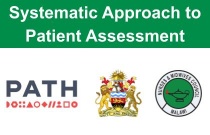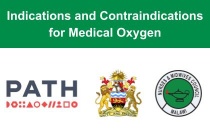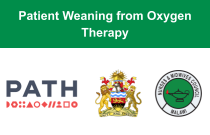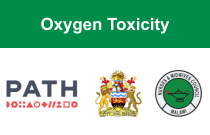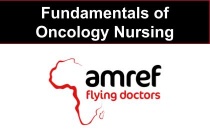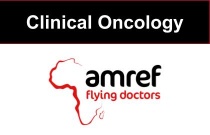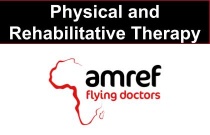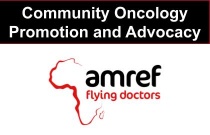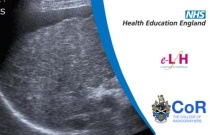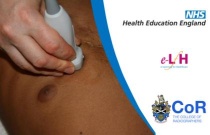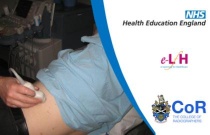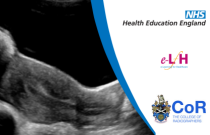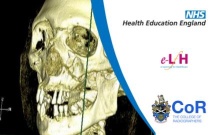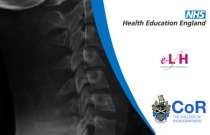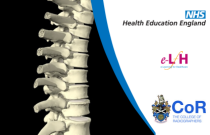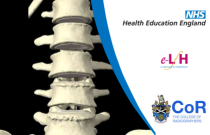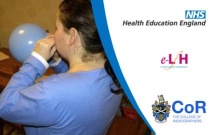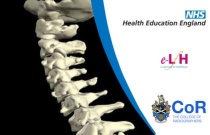Eliciting Patient Concerns
Grant Simic, BMedSci
1.00 Hours
Encourage early disclosure of patient concerns, optimize encounter time management, and improve patient experience. This interactive online course shows how to prioritize patient concerns, build patient trust, identify opportunities for empathy, and respond to patient feelings using empathy.
Maximizing Patient Understanding and Recall
Grant Simic, BMedSci
1.00 Hours
Make your treatment instructions more memorable, deliver explanations that patients understand, and improve patient experience. This interactive online course shows how to build patient understanding, improve medication adherence, and facilitate patient recall at the right time.
Domestic Violence Update
Mary Kathleen Ebener
2.00 Hours
This course defines domestic violence as family violence, and further differentiates the categories of intimate partner violence, child abuse and neglect, and elder & dependent adult abuse, mistreatment and neglect. The dynamics of domestic violence are presented using Pence and Paymer’s power and control wheel as a guiding exp....
Systematic Approach to Patient Assessment
Norman Lufesi, Raphael Kayambankadzanja, Happy Banda, Jonathan Mhango, Eneli Kaliphee
This session equips the learners with a systematic approach that they can follow in order to individualize the oxygen therapy to the patient's needs, monitor their response, and ensure the safety of the intervention; the main goal being to relieve hypoxemia and maintain adequate tissue oxygenation.
Indications and Contraindications; Oxygen
Norman Lufesi, Raphael Kayambankadzanja, Happy Banda, Jonathan Mhango, Eneli Kaliphee
This session equips the learners with the knowledge and skills to carefully weigh the risks and benefits of Medical Oxygen for each patient therefore deciding on who should receive it and who should not.
Patient Weaning from Oxygen Therapy
Norman Lufesi, Raphael Kayambankadzanja, Happy Banda, Jonathan Mhango, Eneli Kaliphee
The knowledge and techniques gained from this session will enable the learners/healthcare workers to safely wean various patients off medical oxygen while maintaining adequate oxygenation levels.
Oxygen Toxicity
Norman Lufesi, Raphael Kayambankadzanja, Happy Banda, Jonathan Mhango, Eneli Kaliphee
While oxygen is vital, excessive exposure can cause oxygen toxicity, which must be carefully managed to avoid catastrophic consequences. As a result, this course provides learners with this knowledge as well as guidance on how to manage oxygen toxicity.
Medical Oxygen & Respiratory Care
Norman Lufesi, Raphael Kayambankadzanja, Happy Banda, Jonathan Mhango, Eneli Kaliphee
This training pathway aims to enhance the knowledge and skills of healthcare professionals in managing medical oxygen, ensuring its safe and effective use in various healthcare settings.
Fundamentals of Oncology Nursing
AMREF Health Africa
Welcome to unit two of the National Curriculum for Higher Diploma in Oncology with Palliative Care Nursing. In this unit, you will learn about Fundamentals of Oncology Nursing. In the previous unit, you learnt about Critical Thinking and Academic Writing. This unit comprises of sections that introduce you to, and lay the foun....
Clinical Oncology
AMREF Health Africa
Welcome to the National Curriculum for Higher Diploma in Oncology with Palliative Care Nursing course. Unit Eight (DOP 118): Clinical Oncology This unit will enable you acquire knowledge and skills in the management of various oncologic conditions and emergencies in both adults and children. Welcome to this unit and enj....
Epidemiology and Research Methods
AMREF Health Africa
Welcome to unit five of the National Curriculum for Higher Diploma in Oncology with Palliative Care Nursing course. In this unit, you will learn about Epidemiology and Research Methods. In the previous unit, you learned about communication and counselling skills used in oncology and palliative care. This unit is designed to e....
Physical and Rehabilitative Therapy
AMREF Health Africa
Welcome to this unit on physical and rehabilitative therapies for oncology patients where you will learn the concepts of rehabilitation, physical limitations patients with oncology develop, Principles of rehabilitation, role of occupational therapy in oncology patients and modalities of physical and rehabilitative therapy among....
Community Oncology Promotion and Advocacy
AMREF Health Africa
Welcome to unit twelve (12) where you will learn about Community oncology, health promotion and advocacy. This unit serves as the fourth in trimester 2. In the previous unit, you learned about principles of cancer prevention and control. In this unit, you will learn about the fundamental concepts on community oncology, health....
Abdominal Ultrasound: Adult Liver Transplant
Jane Smith
This session will provide a brief overview of the adult orthotopic liver transplant. Common complications of liver transplant will be discussed. Advice on how to avoid common pitfalls and tips on reporting will be offered.
Abdominal Ultrasound: The FAST Scan
Bob Jarman
This session will describe the use of ultrasound in the initial assessment of trauma, especially with regards to the identification of potential haemorrhage in the peritoneal space.
Abdominal Ultrasound: Spleen
Angela Rogers and Simon John Freeman
This session considers ultrasound of the spleen. It will include an overview of normal anatomy as well as normal variants, common pathologies, focal lesions, and trauma. Tips on reporting will be offered.
Abdominal Ultrasound: Bladder
Karen Heggs
This session considers the sonographic appearance of the urinary bladder. It will include an overview of normal appearances, common pathology and pitfalls to avoid. Tips on reporting will be offered.
Image Interpretation - Adult Skeleton (X-ray): Facial Bones - Session 2
Anne Lancaster
This session will describe common fractures, dislocations, pathologies and normal variants found in the facial bones. These will be illustrated using radiographic examples.
Image Interpretation of the Cervical Spine: Session 3
Claire Giles
A self-assessment exercise based on Image Interpretation of the Image Interpretation - Adult Skeleton (X-ray): Cervical Spine - Sessions 1 and 2.
Image Interpretation of the Thoracic Spine: Session 2
Lisa Field
A self-assessment exercise based on Image Interpretation of the Image Interpretation - Adult Skeleton (X-ray): Thoracic Spine - Session 1.
Image Interpretation - Adult Skeleton (X-ray): Lumbar Spine - Session 1
Kirsty Buckley, and Alison Walker
This session will look at injuries related to the lumbar spine. It will focus on identifying anatomy demonstrated on both diagrams and radiographs, and offer examples of radiographic technique. Mechanisms of injury will be discussed to develop a knowledge base in clinical presentations. Common fractures, dislocations, pathologie....
Image Interpretation - Adult Skeleton (X-ray): Bones of the Thorax - Session 1
Lisa Field
This session will look at injuries related to the bones of the thorax. It will focus on identifying anatomy demonstrated on both diagrams and radiographs, and offer examples of radiographic technique. Mechanisms of injury (MOI) will be discussed to develop a knowledge base in clinical presentations. Common fractures, dislocation....
Image Interpretation of the Cervical Spine: Session 1
Claire Giles
This session will look at injuries related to the cervical spine. It will focus on identifying anatomy demonstrated on both diagrams and radiographs, and offer examples of radiographic technique. Mechanisms of injury (MOI) will be discussed to develop a knowledge base in clinical presentations.
Adopting the WHO-Recommended Three-Test Algorithm for Improving the Quality of HIV Diagnosis
Dr Cheryl Case Johnson, Céline Lastrucci, Anita Sands and Dr Alaleh Abadpour
A second February 2023 LabCoP Monthly ECHO session is one of a two-part series dedicated to the new WHO recommended HIV test algorithm. In this first session, we focus on transitioning to a three-assay HIV testing strategy that requires three consecutive reactive tests to provide an HIV positive diagnosis and limit the risk of m....
Tool for Rapid Screening and Accelerating Malaria Elimination in Low-Transmission Zones
Luis Gonzalez, Xavier Ding and Carlos Cardenas
On 16 Feb 2023, ASLM’s LabCoP convened an Extended session about an ultra-sensitive rapid diagnostic test for malaria; a potential solution for accelerating malaria elimination and its role in surveillance. Presentations were made by Luis Gonzalez, Global Director, Medical and Scientific Affairs; Xavier Ding, Clinical Strategy M....



